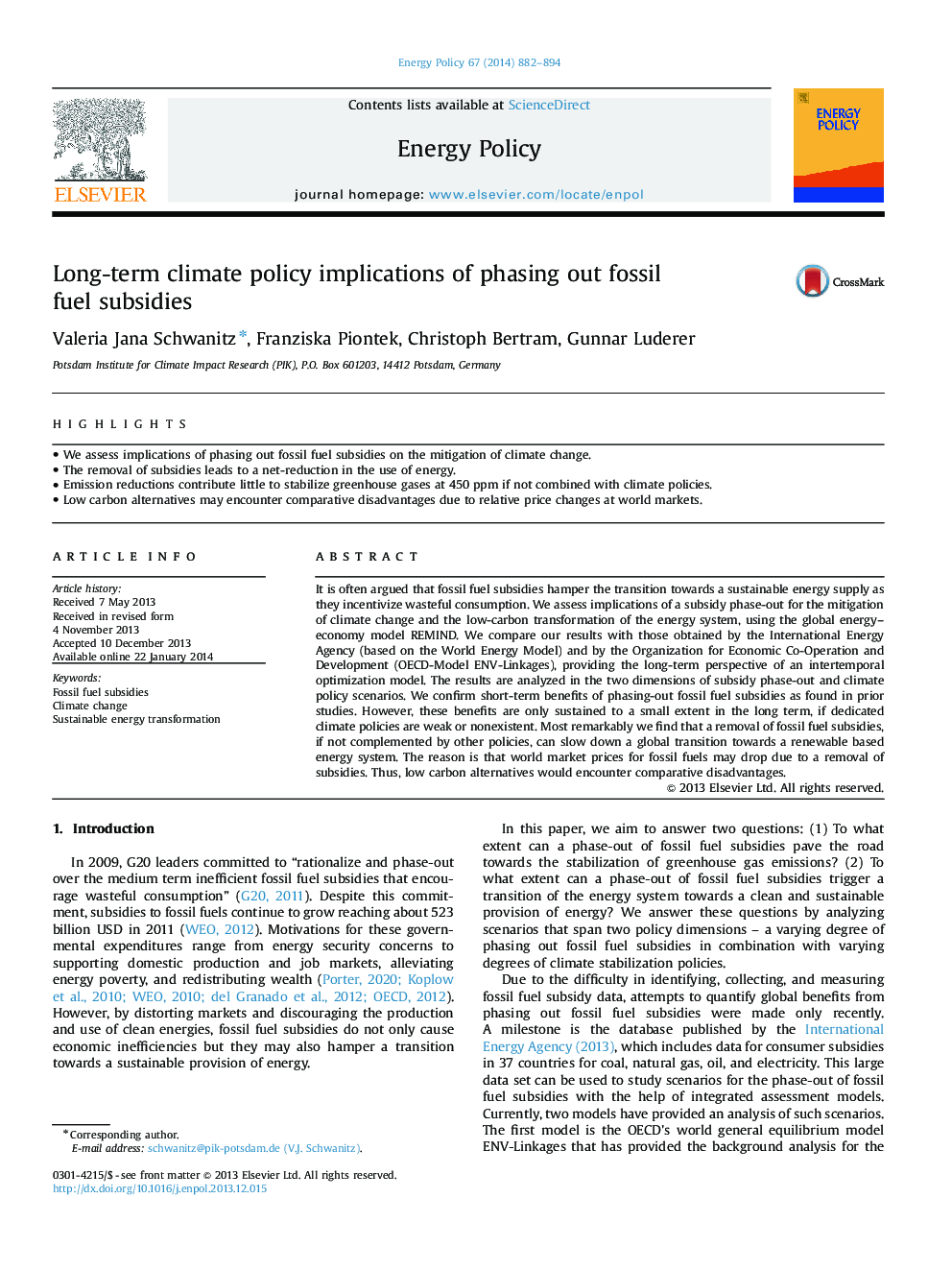| Article ID | Journal | Published Year | Pages | File Type |
|---|---|---|---|---|
| 7402794 | Energy Policy | 2014 | 13 Pages |
Abstract
It is often argued that fossil fuel subsidies hamper the transition towards a sustainable energy supply as they incentivize wasteful consumption. We assess implications of a subsidy phase-out for the mitigation of climate change and the low-carbon transformation of the energy system, using the global energy-economy model REMIND. We compare our results with those obtained by the International Energy Agency (based on the World Energy Model) and by the Organization for Economic Co-Operation and Development (OECD-Model ENV-Linkages), providing the long-term perspective of an intertemporal optimization model. The results are analyzed in the two dimensions of subsidy phase-out and climate policy scenarios. We confirm short-term benefits of phasing-out fossil fuel subsidies as found in prior studies. However, these benefits are only sustained to a small extent in the long term, if dedicated climate policies are weak or nonexistent. Most remarkably we find that a removal of fossil fuel subsidies, if not complemented by other policies, can slow down a global transition towards a renewable based energy system. The reason is that world market prices for fossil fuels may drop due to a removal of subsidies. Thus, low carbon alternatives would encounter comparative disadvantages.
Keywords
Related Topics
Physical Sciences and Engineering
Energy
Energy Engineering and Power Technology
Authors
Valeria Jana Schwanitz, Franziska Piontek, Christoph Bertram, Gunnar Luderer,
